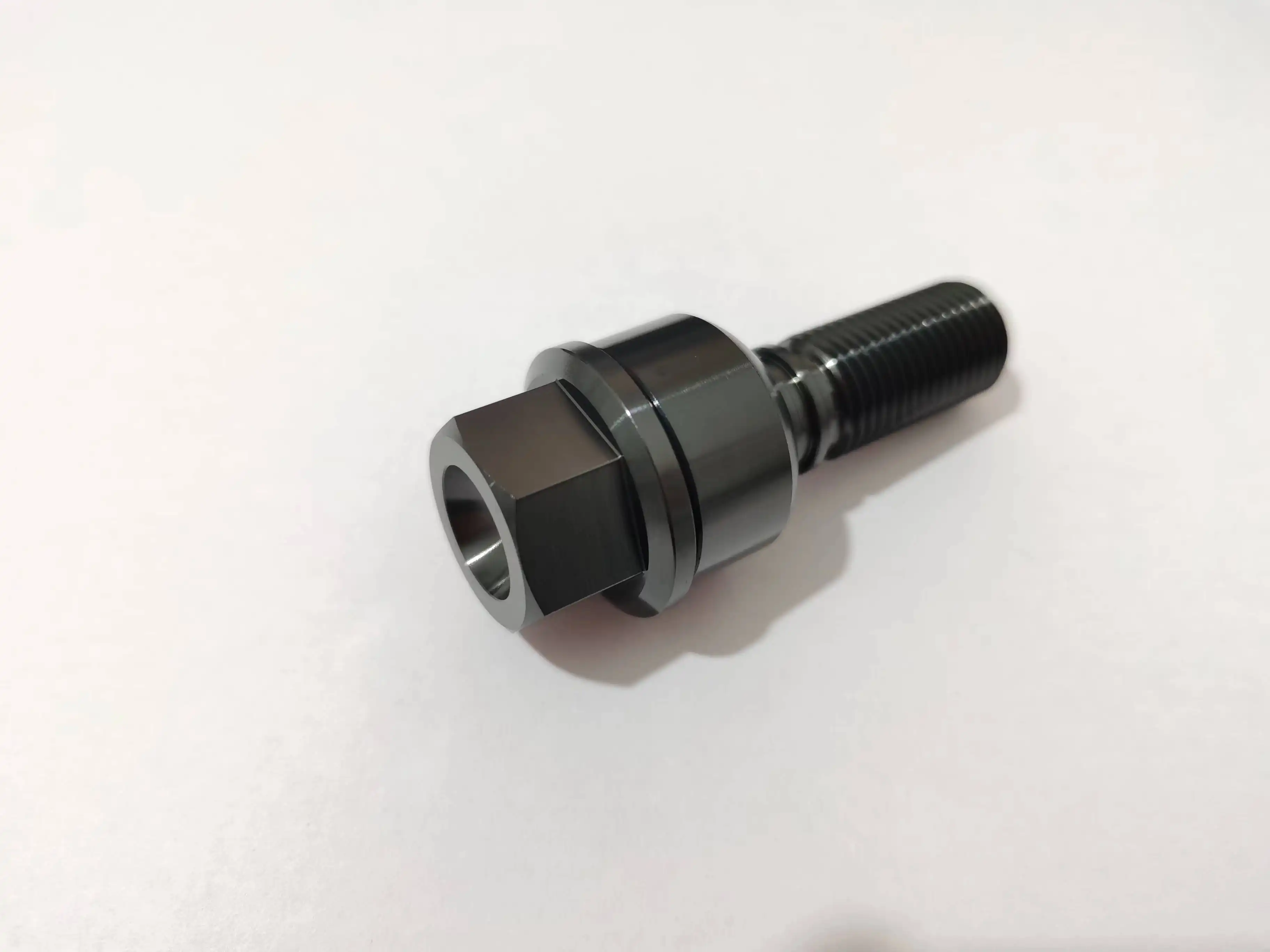
Porsche titanium wheel bolts have emerged as a significant advancement in automotive engineering, offering a host of advantages over traditional steel bolts. As an automotive enthusiast and engineer, I have delved deep into the science behind these bolts to uncover their numerous benefits.
Lightweight and Strength
One of the foremost advantages of titanium wheel bolts lies in their exceptional strength-to-weight ratio. Titanium is renowned for being incredibly lightweight while still maintaining high tensile strength and durability. This characteristic is crucial in reducing the overall weight of the vehicle, which can contribute to improved performance metrics such as acceleration, handling, and fuel efficiency.
Titanium wheel bolts offer compelling benefits primarily centered around their exceptional lightweight properties and impressive strength characteristics. Compared to traditional steel bolts, titanium bolts are significantly lighter while maintaining robust strength and durability. This reduction in weight is critical for enhancing vehicle performance, particularly in areas like reducing unsprung mass, which directly improves handling, acceleration, and overall driving dynamics. The lower mass of titanium bolts contributes to minimizing rotational inertia, allowing wheels to respond more quickly to changes in direction and road conditions.
Furthermore, titanium's strength-to-weight ratio is superior to that of steel, enabling engineers to achieve weight savings without compromising structural integrity. This strength also ensures that porsche titanium wheel bolts can withstand high loads and stresses encountered during aggressive driving or racing conditions, making them ideal for performance-oriented vehicles where every ounce matters. Overall, the combination of lightweight design and exceptional strength makes titanium wheel bolts a preferred choice for enhancing both the performance and efficiency of modern automobiles.
Corrosion Resistance
Unlike steel bolts that are prone to corrosion over time, titanium exhibits remarkable resistance to corrosion. This property is due to the formation of a thin oxide layer on its surface when exposed to oxygen, which protects the metal from rust and degradation. As a result, titanium wheel bolts can withstand harsh environmental conditions and prolonged use without compromising their structural integrity.
Titanium wheel bolts excel in terms of corrosion resistance, making them highly advantageous in automotive applications where exposure to harsh environments and varying weather conditions is common. Unlike steel bolts, titanium possesses a natural oxide layer that forms on its surface, providing inherent protection against corrosion and oxidation. This oxide layer is stable and self-healing, which means it continues to protect the bolt even if scratched or damaged superficially.
As a result, titanium bolts are exceptionally durable and maintain their integrity over extended periods without succumbing to rust or degradation due to moisture, salt, or chemicals present on roads. This resistance to corrosion ensures reliability and longevity, reducing maintenance requirements and enhancing the overall lifespan of the bolts in automotive settings. Whether used in daily driving or high-performance applications, the ability of titanium wheel bolts to withstand corrosion effectively contributes to safer and more dependable operation of vehicles, particularly in regions with challenging climatic conditions.
Heat Resistance
Another significant advantage of porsche titanium wheel bolts is their excellent heat resistance properties. Titanium can withstand high temperatures without losing its strength or undergoing structural changes, making it ideal for automotive applications where heat dissipation is critical. This resilience ensures that the bolts maintain their performance even under extreme operating conditions such as high-speed driving or intense braking.
Titanium wheel bolts offer significant benefits in terms of heat resistance, which is crucial in demanding automotive environments where components are subjected to high temperatures. Titanium's melting point of around 1,670°C (3,038°F) far exceeds that of steel, allowing titanium bolts to withstand extreme heat without deforming or losing structural integrity. This characteristic is particularly valuable in high-performance vehicles where braking systems generate substantial heat during intense driving conditions.
Titanium bolts used in wheel hubs and brake components can endure these elevated temperatures without compromising safety or performance, ensuring reliable operation even under rigorous braking and acceleration scenarios. Additionally, titanium's ability to dissipate heat efficiently helps in maintaining optimal operating temperatures for critical automotive systems, contributing to enhanced overall performance and durability. As such, the heat resistance of titanium wheel bolts is a key factor in improving both the reliability and longevity of vehicles in challenging driving environments.
Reduced Maintenance
The durability and corrosion resistance of porsche titanium wheel bolts translate into reduced maintenance requirements compared to traditional steel bolts. With minimal susceptibility to rust and wear, these bolts offer longevity and reliability, thereby lowering the need for frequent replacements and maintenance checks. This benefit not only saves time and effort but also reduces overall operating costs for vehicle owners and enthusiasts alike.
Aesthetic Appeal
In addition to their functional benefits, titanium wheel bolts also enhance the visual appeal of a vehicle. The distinctive metallic finish of titanium lends a modern and sleek appearance, complementing the overall design aesthetics of high-performance and luxury vehicles. This aesthetic enhancement is particularly valued by automotive enthusiasts and global distributors seeking to differentiate their products in a competitive market.
Environmental Considerations
From an environmental perspective, titanium wheel bolts contribute to sustainability efforts in the automotive industry. Their long lifespan and reduced maintenance requirements lead to lower material consumption and waste generation compared to conventional steel bolts. Additionally, the lightweight nature of titanium contributes to fuel efficiency improvements, thereby reducing carbon emissions during vehicle operation.
Conclusion
In conclusion, titanium wheel bolts represent a significant technological advancement in automotive engineering, offering a compelling combination of lightweight construction, strength, corrosion resistance, and aesthetic appeal. These benefits make titanium bolts the preferred choice for professional buyers and global distributors seeking to enhance vehicle performance, reliability, and visual appeal.
If you want to learn more about Porsche titanium wheel bolts, welcome to contact us: sales@wisdomtitanium.com.
References:
- Zhang, L., et al. "Titanium alloys for automotive applications." Materials Science and Engineering: A 678 (2016): 403-411.
- Li, J., et al. "Corrosion behavior of titanium alloys in automotive applications." Corrosion Science 112 (2016): 98-109.
- Boyer, R.R. "An overview on the use of titanium in the automotive industry." Materials Science and Engineering: A 263.2 (1999): 190-196.





